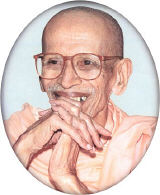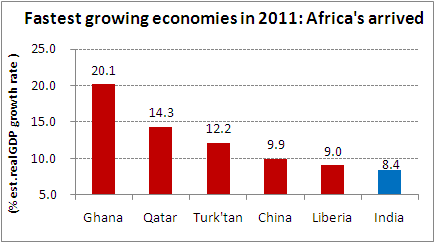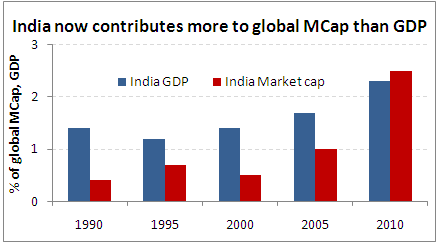God's grace and Human Effort
Gurudeva Swami Chidanandaji Maharaj

You have entered into that path that puts an end forever to darkness and groping, uncertainty and vagueness. Flying as an arrow swiftly towards its target, you must make up your mind that through earnestness, sincerity and sustained exertion you will go straight to the supreme Goal. That is your duty.
Divine grace must be matched, must be responded to, must be augmented by human endeavour and effort. God’s grace and human effort bring about divine experience. A matchstick alone cannot produce fire; a matchbox alone cannot produce fire. Fire results when they work together; it is a bilateral process. One cannot sit idle thinking that Divine grace will do everything. Nor should one commit the blunder of saying: “By human effort alone I can achieve everything.”
Divine grace and human effort are supplementary and complementary to each other. They are twin factors that produce a certain ultimate experience. It is not contradicting Vedanta to say that they produce an experience. We know that the ultimate experience is never produced; it is always there. When a devotee realises God, he does not produce God, he does not make God. God is always there, God is always here, God is always everywhere, God is always within you. But yet what you are experiencing is something which is the direct contradiction, the denial of God. God is bliss, man goes about weeping. God is peace, man is restless.
So you prove for yourself that there is the possibility of the absence of the experience of God, even in the presence of God—even as you live, move and have your being in God. Therefore, whether the non-experience of the ever-present Reality, ever-present peace and joy, is factual or just imagination does not matter as long as you cannot get at it, as long as you are not experiencing it in this state of consciousness. Due to some reason or other the ever-present Reality is not realised. So there is something coming in the way. It is precisely to get rid of that which is coming in the way that self-effort is needed.
In a great feast and festival, a thousand people are enjoying themselves—music is going on, dance is going on, people are talking to each other, some are eating and drinking. One has fallen deep asleep. So far as that person is concerned, all these things are not going on. He may be dreaming that he is alone in a jungle. For him the jungle alone exists, not this festive place. That does not mean that the outer scene does not exist. It very much exists; it is existing all around him. But something is coming in the way—his sleep, his slumber. Someone has to shake him, wake him up. Therefore, the effort that is necessary is not to produce the festivity, but to get rid of something in this individual which is depriving him of this ever-present experience.
Sometimes the government comes to help some village. They offer fifty thousand rupees for some project, but the village has to match the fifty thousand rupees from its side. It is called a matching grant. In this way, one must realise: “I should not sit idle, I should not expect everything to be done by someone else.”
Therefore, purushartha (self effort) has been given a very great place in the context of India’s spiritual life. Early in his life, Gurudev sang a song: “Do real sadhana my dear children, do real sadhana”—purushartha.
Purushartha, sadhana and abhyasa are all one. They are the great need. In the Gita, Lord Krishna plainly states that that which is seemingly impossible is possible, and that state can be attained, by sustained abhyasa. Patanjali Maharshi in his Yoga Sutras also stresses the need for sustained abhyasa. If you have a dripping faucet, the drip, drip, drip will gradually wear a hole in the slab of stone underneath, even if it is granite. And in the low wall around a well, after many years, you can see a groove in the rock where the rope has been pulled to draw water. This is the power of a persistent process.
A poet has said that the great enemy of man is indifference, lethargy, laziness dwelling within his own body. And it is purushartha, regular, persistent effort, practice, that is the ultimate power, force, that overcomes this great enemy. Sadhana must become second nature. It should also be progressive. Just as the waxing moon starts as a small sliver and bit by bit becomes a full orb, so should be your sadhana, your abhyasa, your purushartha, until your life is filled with effulgence and you become “a light unto yourself and a lamp unto the feet of others.”
Therefore, purushartha, self-effort, should be understood as a complement and a supplement to God’s grace. And purushartha does not mean egoism; it is not egoistical effort—this has long been understood. We pray and thank God each day for all the grace, for all the opportunities and facilities, for all the benedictions and blessings He has showered upon us. Now we say: “Grant me the ability to humbly realise its value, to humbly utilise all these factors, this grace that You have showered, for my effort, for my purushartha.”
Purushartha is undertaken fully realising the magnitude of God’s compassionate grace, the magnitude of God’s love and blessedness and with a feeling of constant gratefulness. Thus, in a state of extreme humility one resolutely should undertake purushartha. Then purushartha will not give a false sense of kartritva abhimana (pride of doership). You will strive manfully, diligently, resolutely, determinedly, but with humility, with simplicity of heart, recognising that it is a gift of God. May God bless you all!












And, none from India. Surprised, not really. See, we in India practice the fine art of "copy cat" and "me too" research. After drowning tons of public money we have nothing to show for. What a sad story. I just cannot believe that we Indians, who do much better (socially, scientifically) in foreign countries, but not here in India. I always thought if the government fails to take advantage of the fact that "people are gifted", it will not prosper. We are left only with the gifted and corrupted individuals like Raja (2G fame), Puri (Citibank fraud) etc. What a tragedy!
Eight of the ten are in the field of genetics/biotechnology/molecular biology. Wow!
It is very useful for students and upsc fighter.
For India to find a place in the list, I think the following have to happen: 1) Indian students must develop their own creativity and we need to develop the habit of independent thinking. 2) We as a society, must allow and agree for our children to pursue research as a profession. 3) All the media must promote the news articles related to science & technology to a maximum extent possible. Just an example: compare the media coverage between Filmfare awards and Shanthi Swarup Bhatnagar awards. 4) We must develop the institutional support right from Parliament to Universities and research labs. A great opportunity for Public/Private Partnership. US and western world thrives only due to the strong academic industry coordination, which is backed by strong government support. If these things are taken care, I am confident that we will see our names in the list in near future.
As mentioned by someone earlier,8/10 for biotechnology/microbiology and a couple for quantum physics.Prof. Venkataraman Ramakrishnan was right when he said that Physics was sort of saturated.I think it is the Chemistry-Biology combination that will rule the roost although the brainiest would probably head for quantum physics. No offence meant anywhere! As for the whole 'India' comments mentioned earlier, always,ALWAYS keep the nation/nationality out of Science/Sport and Art.Appreciate them for what they are,not for the practitioners nationality.Follow country/caste/gender/religion for the pettier stuff in life - politics.
India is Corrupt.Success in research doesn't depend on Buildings but on Individuals giving the Best.Also we lack team work.Superiors don't teach their subordinates.They only try to take the credit of what a subordinate did . In advanced countries individuals are encouraged and the credit for good work is given to them.So Indians in the west are doing well,as compared to in their own country.